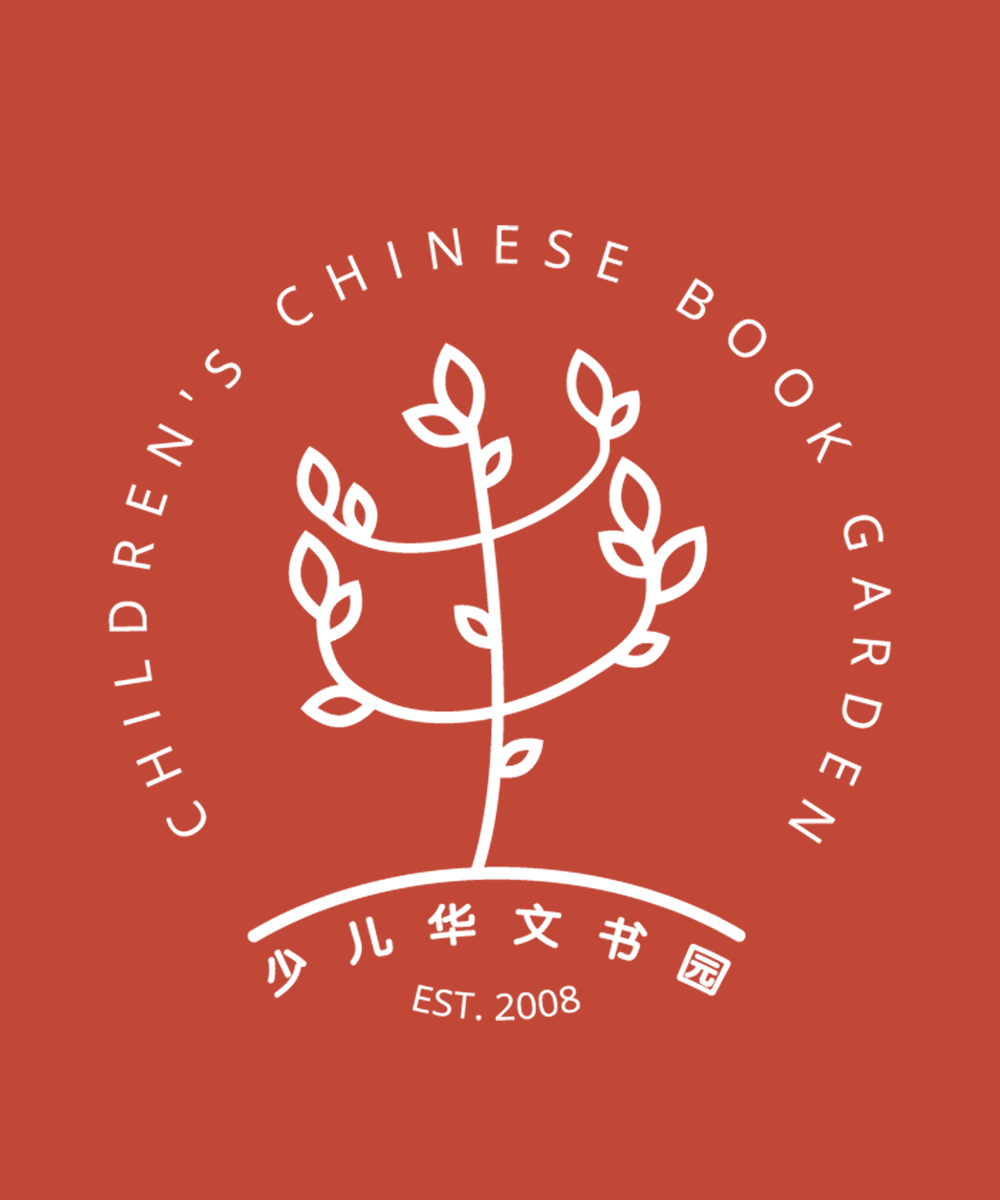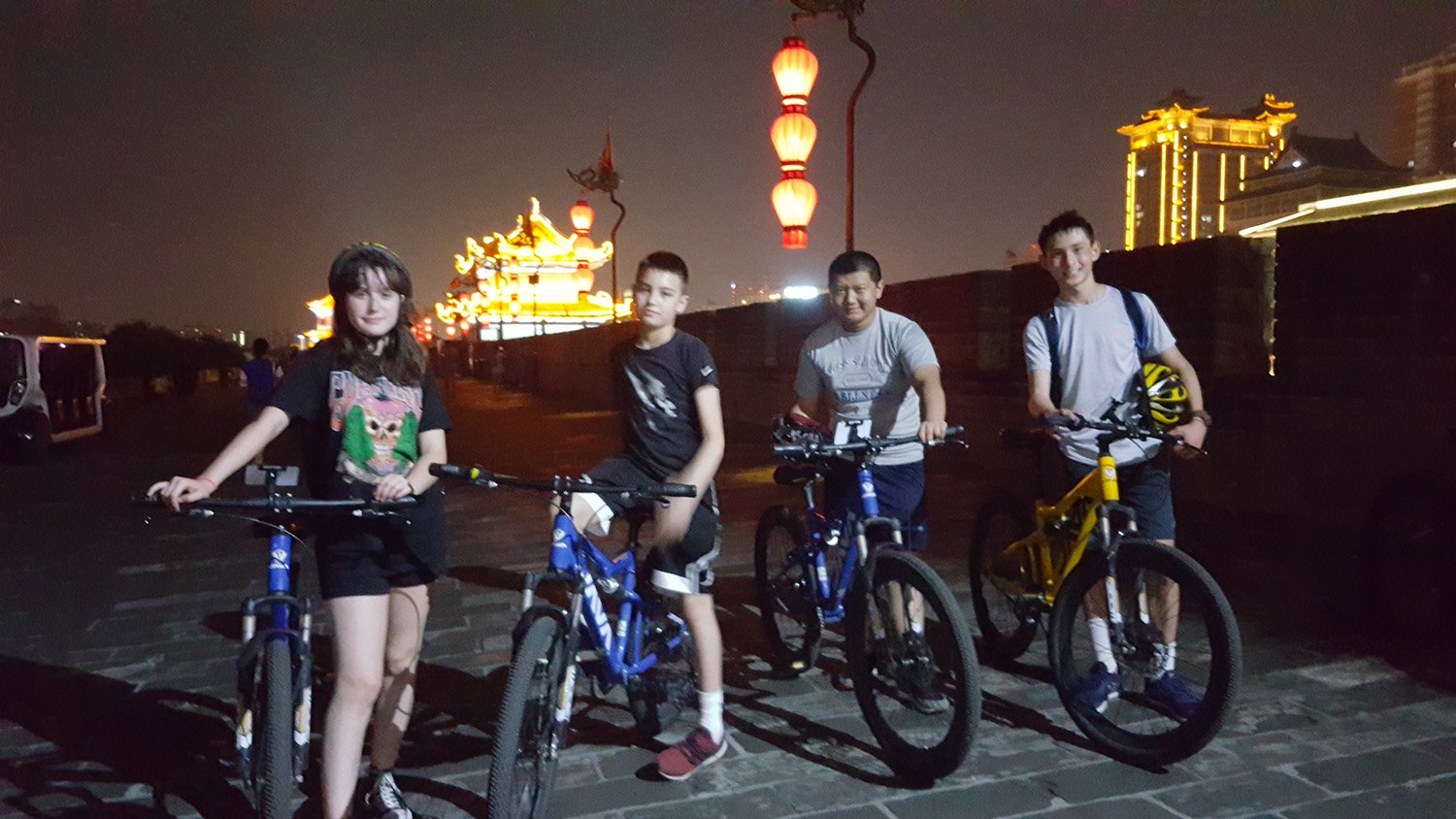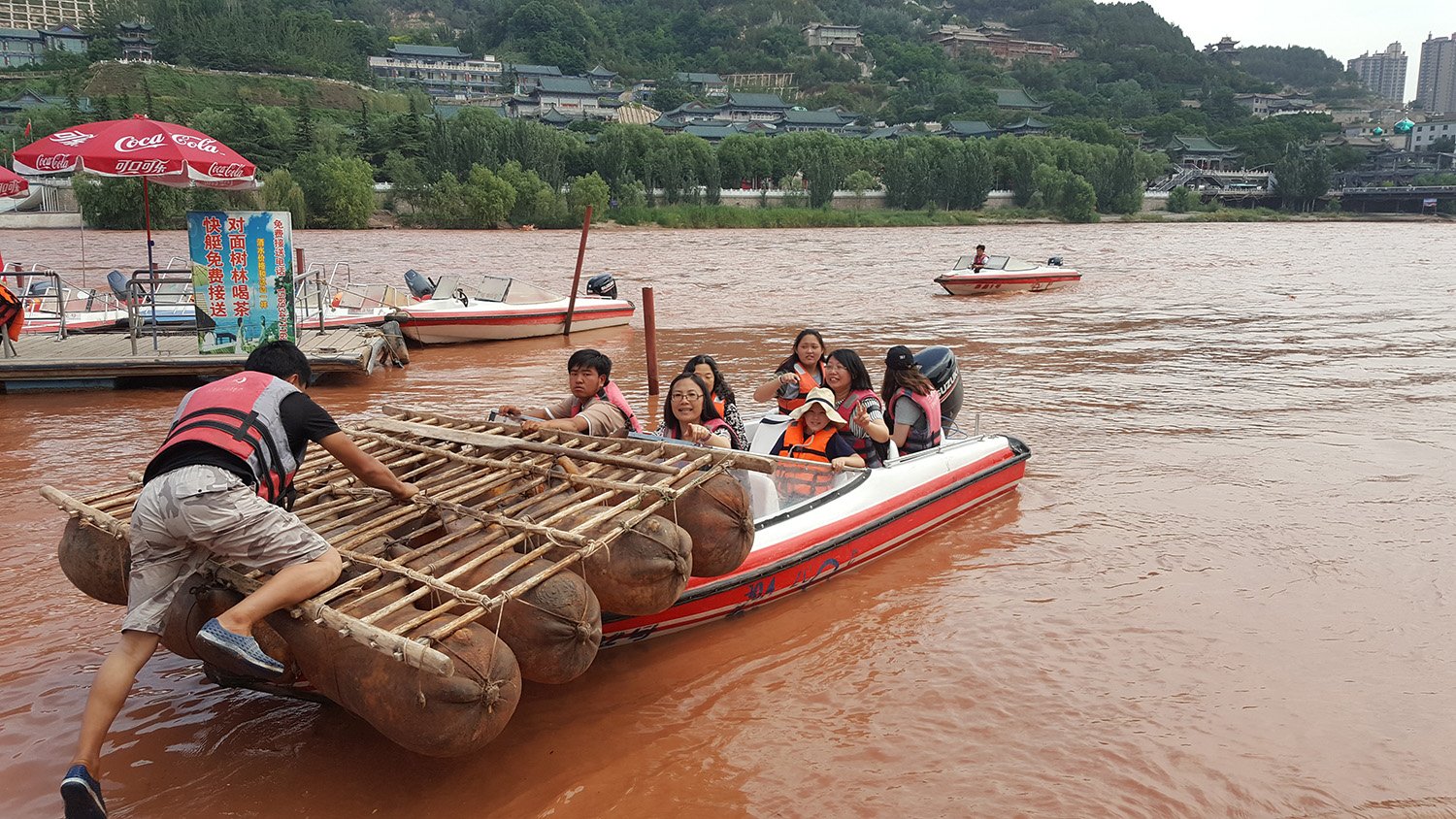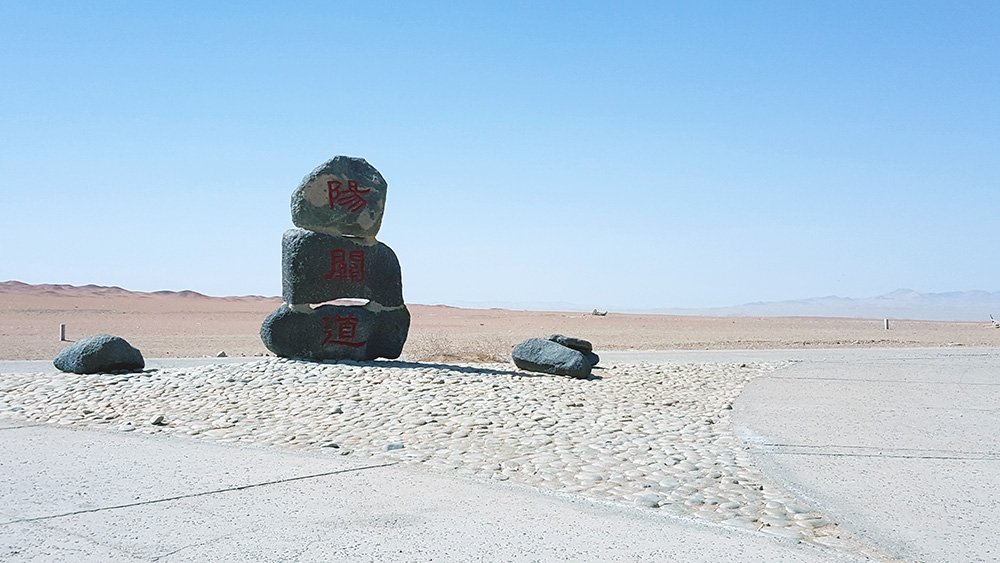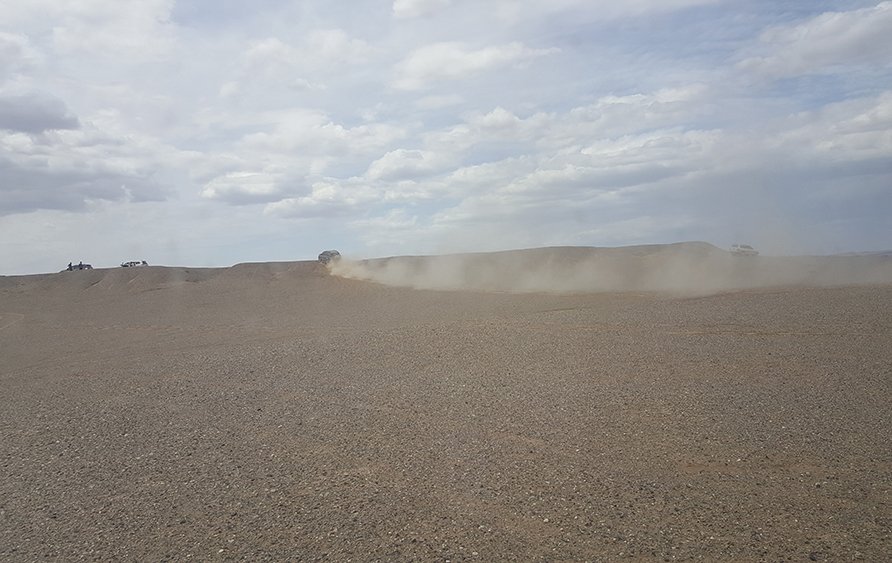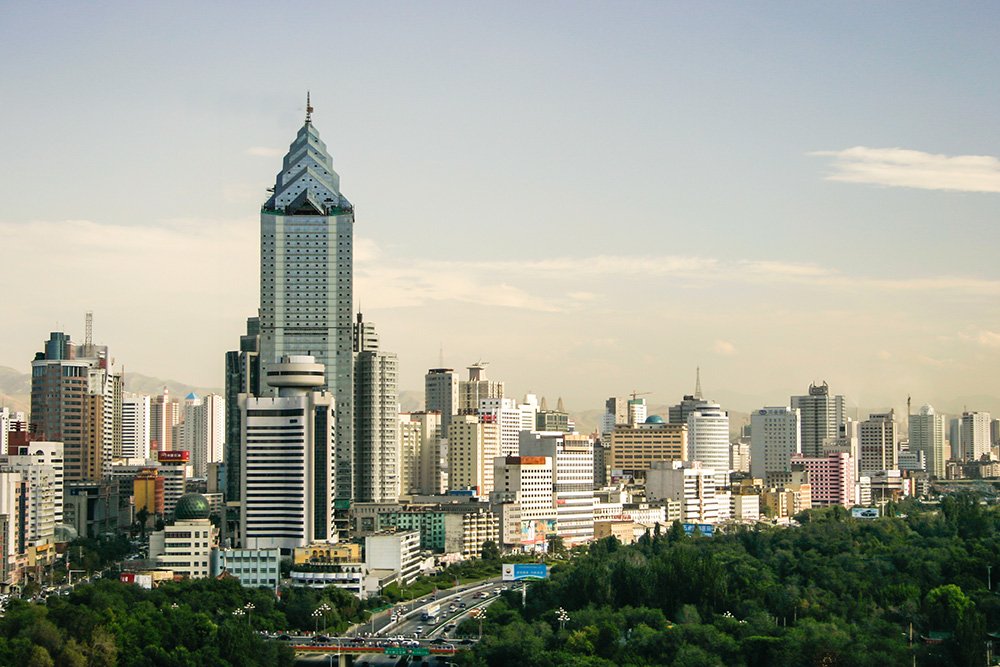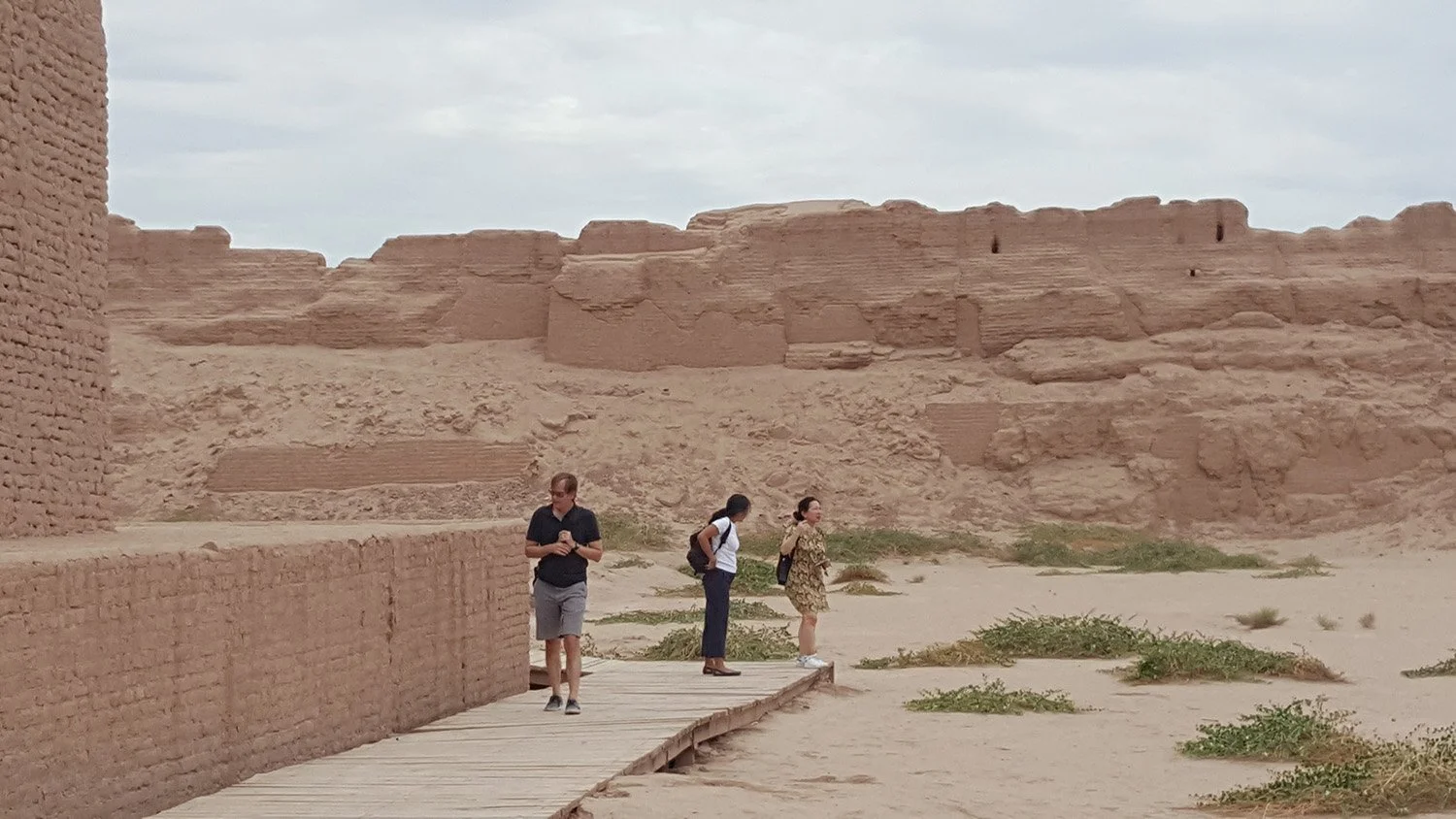For the ancient Chinese going westward, Dunhuang would be the last stop in their motherland. Once out of Dunhuang, travelers faced the awe-striking and life-threatening Taklamakan Desert.
Those who chose to circle along this desert’s northern border would exit Dunhuang through the Yumen Pass (玉门关). Those who chose to circle along its southern border would exit Dunhuang through the Yangguan Pass (阳关).
Thus, we have the poem that every Chinese knows:
劝君更饮一杯酒,西出阳关无故人。
(I urge you to drink another glass of wine with me, because once you exit through Yangguan Pass, you shall find no one you know.)
The great Tang Monk, Xuanzang, had to exit Dunhuang through another pass — the Suoyang Pass (锁阳关) — because he didn’t have the proper travel documents to pass Yuangguan and Yumenguan. From that point on, Xuanzang went through the hardest four days in his entire journey to the West. He lost his followers. He lost his horse. In dizziness he knocked over his drinking bottle and spilled the only remaining water he had. He hallucinated. He was near death.
But, miraculously, he reached a place close to the modern day city of Hami (哈密). Then, the news of his arrival reached the nearby kingdom of Turpan (also known as Tulufan 吐鲁番) and the Turpan King, Ju Wentai, invited him over to teach Buddhism to the people of Turpan.
In our itinerary, we chose to go directly from Dunhuang to Urumuqi, bypassing Turpan. This was to reduce the number of hotels we needed to stay in. After having settled down in Urumiqi, the next morning, we boarded a train to Turpan.
The journey from Dunhuang to Turpan took Xuanzang four days; our groups completed in five hours on the modern high speed train.
When Xuanzang arrived at Turpan, the kingdom was already a devout Buddhist nation. That was the reason why the Turpan King Ju Wentai asked Xuanzang to stay and teach his people, and to Xuanzang’s dismay, permanently.
Xuanzang had to go through a four-day hunger strike to get the Turpan King to agree to let him leave the kingdom. To get the permission to continue his journey westward, Xuanzang had to promise two things to the Turpan King: Xuanzang would teach the people of Turpan for another two months; on his return trip after his study in the West (modern day India), he would stop by Turpan again to teach its people the newly found knowledge he got from India.
Upon Xuanzang’s departure, the Turpan King wrote Xuanzang twenty-seven personalized letters, each addressing to the leaders of a kingdom Xuanzang would pass on his journey. Along with the letters, the Turpan King also gave him sufficient money, supplies and even servants so that Xuanzang was then able to travel with much ease and devote his energy to his studies rather than basic survival.
Our group traveled through the ruins of the ancient kingdom of Turpan, which is very well preserved by the dry climate of the desert. We identified the possible spot where the Turpan King, along with his Queen, received Xuanzang deep at night, holding candles in their hands, and the spot where Xuanzang gave lectures to the Turpan people.
At the ruins, the driver of our trolley was a Uyghur. He grew up with these ruins. While looking at the empty ruins, I said how lucky we were there on a day when there were practically no other tourists around.
The driver replied, “Most tourists don’t come to such a place.”
We both became silent.
Later on, when I viewed some pictures I casually shot of our group members, young and old, children and adults, were all immersed in their own moment seeking the footsteps of Xuanzang, and for the past.
